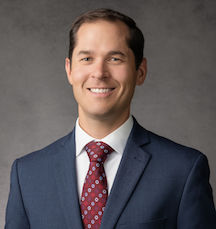Idaho Road Lawyers
Road access can be a high stakes affair. Indeed, owning land has little benefit if it cannot be accessed. Moreover, a road that is not maintained may be little better than no road at all.
Perhaps owing to Idaho’s rural landscape and the vast number of roads that cross open space to access agricultural, residential, or recreational lands, road disputes are common. Fortunately, Racine Olson’s real estate team has decades of experience resolving Idaho road disputes. This experience enables us to identify and achieve clear and cost-effective solutions to road access conflicts.
Public vs. Private RoadsRoads may be publicly or privately owned in Idaho, and that often makes the difference in who can use and maintain them. Most roads, both public and private, were originally created through historic use of the road. Early settlers did not purchase land when making a road; they simply follow the path of least resistance to reach the desired destination. Under Idaho law, a long period of use often establishes an easement or right-of-way under the doctrine of “prescriptive use.” In addition, Federal law allows for the recognition of certain roads based on historic use.
Consequently, determining whether a road qualifies as a public or private road often cannot be accomplished simply by reviewing the chain of title to the land on which the road is located. Rather, understanding the history of road use, and the various laws and court decisions governing road creation, is necessary to properly analyze whether a road is private or public.
Road CreationPrivate roads may be created by purchasing an easement for the road or establishing a private easement through prescriptive use. Establishing an easement by prescriptive use requires proof of open, notorious, continuous, and uninterrupted use of the road under a claim of right for the prescriptive period (currently 20 years). Prescriptive use does not exist if the road was used by permission or under an agreement with the landowner.
Public roads can also be created by purchase or prescriptive use, but there are several other ways to establish public roads. Government entities with responsibility for public transportation can condemn land or easements for roads that are reasonably necessary for the public. In addition, many roads become public as a result of public use and maintenance. Under Idaho law, all roads used and maintained at the expense of the public for a period of five years qualify as public roads.
Another common mechanism for creating public roads is through plat dedication. More than a century ago the Idaho Supreme Court ruled in Boise City v. Hon, 14 Idaho 272 (1908), that recording a subdivision plat and selling lots with reference to the plat automatically results in a dedication to the public of the streets identified on the plat. In that case the Court explained that “when lots are sold with reference to a recorded plat, a dedication of the streets and alleys, as laid out in such plat, is perfected.” Id. at 281. The Court further stated that “no official affirmative action on the part of the city was necessary as the right vested in the public by some of its members purchasing lots in accordance with the plat.” Id. The Idaho Supreme Court reaffirmed this more recently in Farrell v. Board of Commissioners, 138 Idaho 378 (2002), ruling that “the fact that a plat was validly filed and patents sold referencing the plat and the road constitutes common law dedication.” Id. at 385.
Finally, some public roads are created under an old Federal law known as R.S. 2477. This law granted the right to construct public roads on public lands, and it served as the basis for thousands of miles of roads constructed on public land throughout Idaho prior to 1976. Many of these public lands were subsequently patented or otherwise conveyed to private owners, but the public right-of-way remained for any roads that were already in existence and had been used and accepted by the public. These roads today are typically under the jurisdiction of counties and local highway districts which have the right but not the obligation to maintain them.
Road MaintenanceMaintenance of private roads is typically left up to the owners of those roads. When a private road is shared by multiple owners, a well-written road maintenance agreement can go a long way to prevent conflict by prescribing who is permitted to use the road, standards for road maintenance, how road maintenance decisions will be made, and how costs will be allocated among the users. Racine Olson’s road law attorneys have crafted dozens of road maintenance agreements custom fit to meet a wide range of road use relationships.
Public roads are typically maintained by the government entity responsible for the road. However, under Idaho Code section 40-117(9) the government may keep a public right-of-way open to the public without assuming an obligation to maintain it. This is common in rural areas. In fact, many unmaintained public rights-of-way are used to access subdivision developments in recreational areas. In places that receive high snowfall like Teton Valley, Island Park and Bear Lake this may mean there is no wintertime access. Private maintenance of public roads is possible, but only with a written road maintenance agreement with the government authority having jurisdiction over the road.
Before purchasing land or a home or cabin in rural areas or whether there is any question about access it is wise to determine whether the access road is publicly or privately owned, whether it is maintained year-round, and, if the road is privately maintained, who incurs the cost and under what authority.
County Road MapsIdaho Code requires each Idaho county to establish a system of highways and public rights of way and to identify them on an official map. The code also requires that the county review the map every five years and add newly acquired, developed, or validated roads. However, the existence of a road on a county map is not necessarily conclusive as to whether the road legally qualifies as a public road. The Idaho Supreme Court has stated: “if a road is not properly created as a public highway, its inclusion on an official county highway system map does not make it so, nor does it impose any requirement on a property owner to vacate what has never been established as a public roadway.” Homestead Farms, Inc. v. The Board of Commissioners 141 Idaho 855, 860 (2005).
Road ValidationWhere there is a dispute over whether a road qualifies as a public road, the county or highway district can hold a validation hearing to consider all information relating to the road, except testimony from interested persons, consider the interest of the public, and enter an order validating the road as public or declaring it not to be public.
AbandonmentPublic roads may also be abandoned, either formally or informally. The Idaho legislature has prescribed the process for formally abandoning roads. In addition, roads may be abandoned informally (known as “passive abandonment”) by both non-use and non-maintenance of the road.
ConclusionThe foregoing discussion provides a thumbnail sketch of Idaho road law. Several statutes and Idaho court decisions further shape and illuminate rights and responsibilities with respect to road creation and maintenance, which vary from case to case depending on the unique facts and circumstances of each road’s history of development, use and maintenance. If you are confronted with a road dispute, our road law attorneys have the experience and wisdom necessary to properly evaluate your case and formulate a winning strategy. Call us toll free at 877.232.6101 or 208.232.6101, fill out our online contact form, or email us at racine@racineolson.com for a consultation with an experienced Racine Olson road law attorney. We will answer your road law questions and will help you solve your road access problems.
 Racine Olson Home
Racine Olson Home




















